Subscribe to MacroMashup News
Summary & Key Takeaways
- From Wall Street to WealthTech: Manish shares his journey from J.P. Morgan’s CIO office to founding Mezzi, driven by his desire to simplify wealth building for individuals and families. [00:03:55] to [00:06:25]
- Personal Roots in Finance: His early experiences helping his mother, a financial advisor, shaped his mission to make financial tools accessible and personalized. [00:01:15] to [00:03:00]
- "1% Prison": Manish explains how the traditional wealth management model traps users into high fees with limited personalization, and how Mezzi breaks that mold. [00:08:40] to [00:11:25]
- AI-Powered Advice: Mezzi’s AI engine helps users understand tax implications, investment allocations, and goal-based planning in real time, available 24/7. [00:15:55] to [00:20:25]
- Focus on Project Management, Not Just Returns: Wealth building isn’t about beating the S&P 500; it’s about aligning strategy with life goals, liquidity, and risk preferences. [00:13:25] to [00:14:40]
- Serving the Underserved: Mezzi targets users with $500K–$5M in assets—an audience often ignored by top-tier advisors—while also expanding to those below that threshold. [00:21:00] to [00:22:35]
- Tech-Driven Transparency: From real-time data aggregation to handling complex portfolios, Mezzi focuses on depth and clarity, unlike budgeting-first tools. [00:24:55] to [00:26:15]
- Future of Finance: The conversation touches on passive investing trends, AI hallucination safeguards, and how user control and education are central to Mezzi’s roadmap. [00:28:40] to [00:33:20]
Transcript
[00:00:00] Technology's changed and they've got to start the learning again, all from scratch. I couldn't think of a better way to spend your working hours than constantly learning. And so that's a theme throughout my career. But I've gotta say this has been the pinnacle of that concept thus far. There's nothing better than we could be doing with our time than speaking to our customers and understanding their pain points.
And I speak to our customers, our team speaks to our customers every day. We all have visibility in terms of. What customers are complaining about or what feature requests are coming so that we can constantly be improving the product. I really appreciate when customer reach out. There's nothing better than that in terms of what a founder could ask for than having customers actually tell you what their pain points are.
Welcome to the Macro Mashup podcast. I'm your host, Neil Winward. This podcast is sponsored by Dakota Ridge Capital, your energy investments partner, helping developers partner with family offices, banks, corporations to make smart, clean energy deals and maximize government [00:01:00] tax incentives.
Manishh welcome to the macroMashup podcast. It's episode four, and I'm excited to have you on. I'm excited for the listeners to hear a little bit about your background. So why don't I let you go with that and then we can take it from there.
Yeah. Neil, thanks so much for having me on. Appreciate it. I've been around personal finance and financial markets my entire life. I've just been enamored with it.
Probably my first introduction to it was collecting baseball cards and basketball and football cards as a kid.
And really, I wasn't even, I love sports, but I was much more fascinated by the price guide, which is called a Beckett Price Guide, that allowed you to really analyze and track the values of these different trading cards over time. And just the process of trading those cards with my friends was a blast.
One of my fondest childhood memories and my first real exposure to finance. But, soon after I was helping my mother, who is a financial advisor. File her [00:02:00] paperwork in exchange for vending machine candy bars. And, I was her first and only head of marketing helping her design flyers that she would take to various events.
And, I grew up around dinner table conversations where she would get calls at all hours from clients. Many of them were immigrants in suburban New Jersey asking her about, financial questions all throughout the day. And I got to overhear all of this as a child. And it was really a fun kind of, learning experience all along the way.
And that's really where a deep interest in both entrepreneurship and finance started and took me to eventually took me to Wall Street. Starting with unpaid internships all the way through 10 years at JP Morgan across a variety of different financial markets roles, and, can certainly tell you all about the details of that, but it's I've just broadly been around finance my entire life and have really enjoyed both the personal side of, the process of building one's own wealth, but also as an observer of businesses and how businesses are operating [00:03:00] and how financial markets are operating.
Right now you work, as I recall you worked at the JP Morgan's CIO office, which was essentially JP Morgan's own proprietary assets, right? Investing its own assets as opposed to investing assets for its clients. But you have a little experience on the. On the investing for client side as well, don't you?
Yeah, that's right. It actually started with my first unpaid internship at a regional Merrill Law Lynch office in wall, New Jersey. Where, I worked alongside financial advisors and I would see mutual fund sales folks come in and pitch their mutual funds to advisors and then advisors would put their clients in them.
And so that was my very first experience. But soon after , studying finance in college NYU went on to work at On Wall Street at JP Morgan, where I was a sell side equity research analyst. And what I was doing was covering a particular sector of stocks. And in my case it was broadly [00:04:00] telecommunications big companies like Verizon and putting out a public view on these stocks that hedge funds, pension funds, endowments as well as even wealth management firms or even financial advisors would take these views and would act upon them or would synthesize 'em and figure out if they would wanna act upon them. So maybe just explain briefly. What the the CIO at JP Morgan is and how it's different Yeah.
For a, to be managing their own assets versus managing assets for their clients. Yeah, the simplest way to think about it is, a bank's business is. Making loans. And in order for them to make loans, they have to collect my deposits, your deposits business deposits so that they can go out and make these loans and a bank profits because they take a spread based off of the loans versus deposits.
They're not always able to go and take all those deposits. In JP Morgan's case, when I was there, it [00:05:00] was 2 trillion of deposits. They weren't able to always go and find enough loans to lend out against with those deposits. There was almost a gap in their balance sheet where they had too many deposits and they needed to figure out what to do with those.
And so they would go and invest those in other yield producing assets outside of loans so that they weren't in a negative position, so they didn't have a negative spread. That's the simplest way I would describe it. And that's what the Chief Investment Office managed at the time when I was there, around a $300 billion or so, the largest on Wall Street global kind of fixed income portfolio that was meant to compliment the yield that the bank would get off of loans.
So obviously you learned a ton doing that, and you learned how to figure out value and portfolio allocation. What led you from there into the, journey from where you were at JP Morgan into what you're now doing [00:06:00] at Mezzi?
Yeah. Because it's very different, right? Yeah, it is. It is very different. I would say the learnings from the experience are super valuable, but it's certainly different building for kind of a consumer more retail investor audience as opposed to building or doing anything for institutional investors.
And I think actually about my experience working with my mother as a child is probably the most inspirational for what we're building with Mei, which is ultimately I. How do we help individuals and families build their wealth over the long term? How do we help them put their money to work so that they can achieve their long-term goals, whether that be buying a home, retiring early, paying for their children's college education, taking that extra trip, whatever it might be.
And my, my mother's clients were, many of them were again immigrants that had very little understanding of finance and that's really where the inspiration came to how do we help people on their wealth building journey. As I was JP [00:07:00] Morgan, I had, lots of friends and others that I'd meet that even colleagues at JP Morgan that didn't know much about building their own personal wealth.
As I'm sure when you're working in finance, it's easy to think that I should say people outside of finance, it's easy to think that anyone working in finance knows everything about personal investing when in fact it's very far from the truth. Finance has so many different narrow career paths, and you don't actually learn a lot about building your own personal wealth.
And so as I witnessed that firsthand amongst friends I realized that there's just, I. There's a major problem out there with the ability for people to get good insight into building their wealth and to navigate the complexity of it. And, I would say being at JP Morgan, I was also part of the establishment where I saw firsthand how, the establishment does sell to the retail investor and how it's not often in the interest of the establishment.
To help the retail investor or to educate the retail investor. And that's something I learned along the way that I didn't necessarily love 'cause [00:08:00] it was a, it was a juxtaposition to seeing my mother and how she would educate her clients. Right Now we I remember, I'm old enough to remember, I think when Merrill Lynch introduced that, that concept of the wrap account, right?
Where we had a, we had an era where. Brokerage houses lived off the commissions that they generated, and so there was a real negative connotation attached to that, which the, the media put forth as being brokerage houses, having the incentive to churn their clients' accounts.
And why would they do that? Because the more trades they make, the more commission they make. And so that's right. This beautiful world of. Percent of assets under management grew, it's like somewhere between one and 2%, depending on the amounts. But let's say 1% for argument's sake, because a lot of of, of advisors have gravitated toward that. So now we've moved away. Commission hasn't gone [00:09:00] away. It still exists for sure. But now we've got the ads on television. It's oh, don't worry, we're different. We only grow if you grow, yeah. And people are like, oh, that sounds great.
Because then if we suffer, then you suffer too. It's sure. But then you get this whole thing has been baked into the mix now, which is people are accustomed to paying their wealth advisors 1%, and then in many cases they may just be getting very much the off the shelf product.
For the majority of people, it's the specials of the day are, and the chef highly recommends them, and they're like if the chef highly recommends them, what am I gonna do? That's the era that we're now in. And obviously as asset values have grown that can be a considerable amount of money for a lot of people.
Tell the listeners a little bit about how you. Having defined that as being, a problem, let's say the 1% prisoners are that refer to it. I love that, by the [00:10:00] way. 1% prison, 1% prison. It's a prison because it, there's a high switching cost, or it feels like a very intimidating switching cost once you're locked in with one particular individual to say, I'm gonna go in a different direction.
And I can't tell you how many conversations I have with people where, I say, do you work with a financial advisor? And they say, yeah I have someone that I work with and I say, okay, have you put all your assets with them? And they say, no. I've put a portion with them. I talk to them maybe, once a year or something like that.
And what is it? They're not willing to move their assets from that person elsewhere because they're stuck in the prison. It's an awkward, it's an awkward conversation, you call up your broker. I'd like to move my assets or what have I done wrong? Yeah. They're my assets.
And, but that is an awkward conversation. So there's some sort of inertia there, and there's also friction in moving assets from one place to another. That's right. How does Mei seek to address that? That [00:11:00] issue. So let me start by just giving my own personal journey around this problem, because I think that'll help bring it to light as to, why I, why this really resonates with me.
So as I started, building my wealth when I started off my career at JP Morgan, like earning a good salary. And I started off with a 401k account and then soon a taxable brokerage account. So I added a Roth IRA, a traditional IRA. And as I was starting to build this wealth I found myself questioning am I doing all of the right things to go and build my wealth for the long term?
Common wisdom is you should hire a financial advisor to solve that problem for you. And so I walk into a financial advisor's office. It's a major kind of national coverage type of financial advisor. And I go and meet with the advisor and in very short order, I end up in one of the funds one of the firm's proprietary managed funds.
Is a relatively expensive fund that proceeds to underperform the market over the next 12 [00:12:00] months. And now I know a lot more, but at the time there were no questions around what I think of as the pillars of managing your wealth. What is your overall portfolio allocation across all of your assets?
What's your account allocation? What are the different types of accounts you have, and are you missing any in the equation? What are your life goals? When do you wanna retire? Do you wanna save for a house? Are you married, et cetera. Tax planning, how much did you pay in taxes? How are you optimized for taxes?
And then even other stuff like estate management or estate planning or life insurance. All of these pillars are super important to ultimately like thinking about the entire wealth management picture. But oftentimes because of, I think this commoditization of financial advice that's happened as industries have sought, how do we get more and more of this 1% of assets every year is led to a very narrowing value proposition.
Instead of this kind of broad wealth [00:13:00] picture. And if the commoditization fits really well with generally how Wall Street operates, because you can have this financial advisor that's primarily a salesperson go and then bring in the client and turn that client, and then pitch the firm's services across mortgage, across insurance, across investments, across whatever it is.
But they don't actually have an expertise across all of those different pillars. What is so exciting to me is that we are at a time where technology allows you to build those pillars in a very streamlined way and route individuals based on their own personal needs. To what is missing in their financial picture.
And so helping people think about those six pillars from account management to portfolio allocation, to tax and beyond is something that has me super excited because I think about ultimately managing your wealth as a project management problem. It's not about beating the s and p 500. If [00:14:00] any advisor tells you it's about beating the s and p 500, you should run far away from that advisor.
It's a project management problem. Technology is at a position now where it's super possible to solve that project management problem? Yeah, the way I found myself in conversation with you was I had been looking for a sort of a meta level. Product that could sweep in the different accounts that I have now.
I didn't have many, I have most of 'em consolidated on one platform, but I do have an account in the UK from a, pension over there, similar to a 401k. And I'd like to have a view of them all together because one of the things that was frustrating about.
Dealing with, the wealth manager I was with, I'd say I have a significant sum of money over in the uk and. It wasn't managed by them. They really didn't care. They were just like you're gonna get 60 40, you've done this assessment, you're gonna get 60 40.
This is how the [00:15:00] sixties gonna be made up. This is how the 40 are gonna be made. I said what about this part over here? You can figure that out. But obviously it's a significant part of the portfolio allocation. So at least to be able to see all of the things in one place would be.
Very helpful because then you can actually, know what you've got and how you've allocated overall. So you know that's, that that's one part of the puzzle. But then, you and I had a conversation, you say we haven't quite got there yet with measure That's right. Was, we haven't given the ability to put a manual account, but, and this comes onto the really interesting part next is.
You can use our AI tool to say I have X amount in a non linked account in a different country. It's invested in these assets, let's say three month T-bills, and I'd like you to factor that into an A table of my portfolio allocation so I know the whole picture. [00:16:00] That's right. And then the AI tool then gives me a table that says, here it is.
And then I say could you just aggregate all of the cash into one bucket so I can see what is cash and as opposed to say, so there's sure I'll fix that for you. And then it restates the table and I thought, wow, that's a really powerful tool. I'd love to be able to, and I'm sure you will eventually have that capability, but.
Then, I started playing with the tool and I was like could you tell me if I have a, if I'm a UK based investor investing in a dollar based tbi, ETF in the uk, can you analyze my foreign currency exposure? And so it went through and it came back and it gave me a view.
And I was like, this is a conversation that people ought to be able to have Yes. With their wealth advisor at any hour of day, at any hour of the day. [00:17:00] And so I thought, oh, this is really quite a powerful tool. So maybe talk a little bit about the AI functionality that you built in from the grand floor.
Yeah. It's fascinating because I love the way you described that. It really is. For us, it's really about being able to ask any question you have. Whether it's a small one, a big one, whether one would perceive it as a dumb question or a very complex question to be able to ask any question you have at any time of day.
I, over the weekend, I walked into our town over here and there's three wealth management firms. Suffice it to say that the shades were closed on all three of them on the weekend. Who has time to manage their wealth or to meet with an advisor? I've got two kids. I don't have time to meet with an advisor in the middle of the week.
Who has time to take that time out of their day? We're available for you. We wanna be available for you at any time whenever you have the question. And whether it's a small question or a big question, but. [00:18:00] Beyond that, we don't want you to have to think about the questions. A lot of people don't know what questions.
And so actually, most people, your, you've been on Wall Street for 20 plus years, or the UK equivalent of Wall Street. You suffice it to say you have a wealth of knowledge about financial markets. A lot of people don't even know what questions to be asking, and so we are increasingly providing that inspiration.
We are saying things like, did you know that you had $10,000 sitting in a retirement account, and would you like some suggestions? Based on your risk profile or based on things you've previously invested in, what you could invest in? Or did you know that you have high exposure to technology?
Because not only do you own the s and p 500, but you also own Nvidia and Amazon. And so what's your true exposure? And then guiding them through. Potential ways that they could diversify that exposure. And so we really wanna be both like the, always on, eyes and ears for someone as well as the non-judgmental [00:19:00] sounding board for whenever you have a question and making it easy to ask those questions as many times as you want, however you want, without intimidating.
So how do you deal with the hallucination issue that people are accustomed to dealing with their AI tools? Because you really don't want your wealth advisor hallucinating over questions like that. Yeah, it's where we spent the most amount of our time over the past 18 months as we've been building this product.
It's not enough to just go to a chat GPT and try to upload your portfolio statements for your various different brokerage accounts because that information will get stale very quickly. And of course, LLMs are known to hallucinate and not be very good at math. They're getting better. But there are still lots of issues.
And so we built our AI infrastructure both to capitalize or take advantage of a ton of data standardization work that we've done. You connect your Interactive [00:20:00] Brokers account and we pull in all of that information, but we need to synthesize that data and clean that data for things like.
Stock splits. Tesla has split three times or something like that over the past five years. Occasionally things will be labeled instead of being labeled as an equity, they'll be labeled as an ETF or vice versa. And so we need to fix those things. And so we do all of this data, normal normalization work so that when you go to the AI and you say, what's my exposure to tech?
You're actually getting an accurate answer. Whereas if you were to use an LLM off the shelf, you may not get an accurate answer. And it's certainly. Could be stale if you uploaded your statements from a week ago or something like that. And without getting into the details and around our kind of proprietary approach, our AI infrastructure really works to solve this halluc hallucination problem.
And so as you think about what your target market is w what's the, [00:21:00] maybe give some numbers about where the distribution of account sizes is among your, and how do you, how did you start out? Who did you have in mind? Is it people with a hundred thousand dollars or more, or half a million dollars or more?
Or just how did you figure out your addressable market? Yeah. What I'd say is ultimately we believe we can, serve the entire market. But our initial starting point is where we believe the overall financial advice market is very underserved. And so in particular, that lends itself to people that have some complexity with their wealth and have.
Wealth and what we define as wealth is 500 k to $5 million as a starting point. As you go beyond $5 million, you start to get access to the best financial advisors. If you think about a lot of financial advisors don't actually wanna worry about, [00:22:00] millennials or Gen Z that even have a million dollars or $2 million, as surprising as that is.
Most of the profit is from clients that are $5 million and above. And so we've initially focused on that segment. That being said, we have users that are below that wealth level and significantly above that wealth level. But the real starting point for us is those that have primarily most of their wealth in liquid assets because that's just the easiest place for us to get started in terms of providing insights.
Our ambitions are to go beyond that and to cover private assets to cover assets that may be sitting in an international account, like in your case. AI increasingly enables you to pull down data from various different places. If you think about the value that agents, I don't know if you've played around with chat GPEs operator, but operator has the ability to go and get information from you from various different places.
And I personally played around and said. Go to my E-Trade account and pull down my cost basis on my Apple shares, and it was able to do it, it took about seven [00:23:00] minutes to get it done. And it looked through all the wrong places on the website, but it eventually got the answer. And that is the future is being able to go and get your UK pension assets on your behalf.
Every day and get a fresh view so that you don't have to go and get it. And then ultimately to go below that as well, on a, from a wealth level perspective, because having seen this firsthand with our users, there's a real thirst for education and there's never been more education out there today.
Take this podcast as a great example, right? That education is at everyone's disposal. The challenge is synthesizing through all that education and making sure that it's relevant to you. And that's where we really believe we have a great opportunity to expand the services of wealth management.
Well below the million dollar or the half a million dollar threshold. Yeah, we should spend a few minutes talking about competitors because, there's never been a better time to actually. Research the kind of products that you want to get to, to help you [00:24:00] manage your financial picture.
I've certainly done that, but there's a category of tools out there that are very much focused on. Pulling in all your financial transactions, categorizing them, helping you budget maybe offering some templates from a community portal that can track your investments and connect to Google Finance or something like that.
And then there's things like personal cap, what used to be called personal capsule. Empower. Yes. It's now Empower who I think do a really good job and they have a nice interface but again, they always had trouble in my experience, capturing the manual accounts, and it's very unsatisfying to have some of your feeds not be. Automatic. You want all of your feeds to be fed and not some of them ideally. So who do you think of as your competitors in this market? What I broadly say [00:25:00] is that a lot of the players in the space have focused on the budgeting, savings, and cashflow management piece without naming specific names.
And what we saw was real gap in the market for. We have a philosophical view that. It's better that you spend your time on turning your $10 into a hundred dollars rather than trying to cut your Netflix subscription. There's an opportunity to do both, but what's gonna be really more impactful over time is making sure that you have a.
The right asset allocation that you're putting your extra money to work, investing in the market. And so that's where we saw a real gap in the market, and that's really where our focus has been. And we believe we go deeper on the investment side than any of the other products out there.
And it's increasingly getting deeper from that perspective. And that's the lens that I take versus, broadly the set of tools out there that are. They do a great job with aggregating everything in one place. But they [00:26:00] won't go to the depth of handling Tesla's three stock splits over the past five years, so that you have an accurate view of your time weighted performance across each of your investment accounts over the past five years.
And what that means is the ability to compare your taxable brokerage account performance versus your Roth IRA versus your traditional IRA or your taxable brokerage account performance versus. All of your accounts combined and see that all in one view on both mobile and on web. And I can tell you that specific example of functionality is not available on any brokerage mobile app as far as I've discovered in the US at least.
Yeah, and there's some strange areas of the investing world, such as, the wash sale rule, for example, which is a very quirky thing that people who trade a lot know about. But when you start asking questions about things like that in the context of comparing taxable and [00:27:00] non-taxable accounts, there aren't that many tools out there that can give you answers that are useful for your purpose. Most people, I think of their IRAs. It's a great thing. I get a match from my employer. I put in money every paycheck, it goes into my RA.
They never really think about what happens when that money comes out, because it's too far down the road. And it's issues of, cost basis as they impact your taxable account, very significant as they impact your non-taxable account. Actually quite different.
Query your Wealth tool and say, tell me about how this works in my IRA versus how it works in my tax taxable account is a new tool people see, I. I have the AI tool that I use for everything, but I know it hallucinates. So yeah, I can't really, I, I can't really rely on it, or maybe I can, but I have to go back and forth and have an argument and so forth.
But having something where you can embed it in something like Mei, I [00:28:00] imagine. And is pretty attractive. How have you found the uptake of your product, among your target audience? You asked, how are we different from the competitors and it's very much on the investment side, but I'd also say that there are no companies out there that have as robust of an AI product as we do.
And there's. Very few companies, period, that have any AI in their product whatsoever. And it really comes back to what you said earlier, which is the power of being able to ask any question at any point in time. And I'll give you a personal example. When I use our AI product on a daily basis, one of the things that ends up getting woven in is, I put in a goal to buy a home for my family and to fund a down payment.
And, without giving into specific numbers, buying a home in the Bay Area is quite expensive. And so whenever I'm thinking about asset allocation and I'm having a conversation with our ai. I'm oftentimes reminded by the fact that I don't have enough liquid [00:29:00] taxable assets to go and fund a down payment, and that I should really be thinking about my asset allocation.
With that in mind I. It's this constant, like always having eyes and ears thinking about your constant needs that I think is super valuable. And it's almost subtle, right? It's not in your face. You don't have enough money for a down payment, but it's nudging you as you think about things on a day-to-day basis to keep that in mind as you maybe think about going and buying more shares of Nvidia when maybe you wanna be buying some bonds as well alongside of that, so that you have enough liquidity.
Yeah, and I think one of the other things that people maybe don't notice because it's crept up on us in a very big way, is the impact of passive investing. It used to be the case that passive was not the majority of the money allocated in the market. That's flipped, that's changed.
Oh, yeah. Very substantially. Because we now have, all of this, 401k money for example, going into passive. And when a dollar goes [00:30:00] into a passive fund, that dollar is getting allocated without the benefit of. A critical review of what the asset allocation, what the underlying stocks are at that point in time, whether it's the right time to be investing in Nvidia or Microsoft or Apple.
It's just going in. And you know that's the sort of the passive wall of investment. One day it will start. Coming out, but hopefully not that, that could be painful. But I think the concept of using a tool like, mei is very different. How are you going about promoting the product, increasing the adoption?
How are you pitching this to potential customers? Yeah, Neil, what's been fascinating to see and remind me again, how did you come across Mei? Yeah, that's a great question because I was searching for a recent a product to fill the need. And I was interrogating my favorite tool, which is perplexity.
Okay. And it said, it came up with, [00:31:00] it came up with Mei Wealth. And it came up with a few other things as well, which I checked out, but I checked this one out and the, the one of one, how did I come to Izzy? I tried one or two tools and connected up the accounts, put in the key and so on, and then it came up with.
There are 70 invalid entries and it's oh man, market data connections. Do I, how do I fix, how do I fix that? And I was like, wait a second. I shouldn't have to fix that work connection real established, and I want it, or it doesn't work and I don't want it. So let me get rid of that one. And yeah, let me try Mei.
So Mei, I tried it, connected everything up. Pulled in the data, it took a few minutes, I think I called the number to say, why isn't my data coming in? Nobody was there. And then 15 minutes later you called me back, you said, oh, I am, I'm the CEO of of me. And I was like, okay, let's have a conversation.
So that's how I came across it. [00:32:00] Gotcha. Yeah, no that's super helpful. You know what's fascinating is it, we are certainly doing education around. How you can leverage Mei. But it's almost like the market in terms of where technology is going is doing it for us. And what I mean by that is people, I think chat, GPT has a.
Maybe a billion users now. Last I heard was 300 million, but then I think I heard a billion recently. My father just got started using it and it's clearly entered the mainstream, right? And it's entered the mainstream for anything. My son has this weird rash and what's going on to I need help, planning my day to, I need help with synthesizing the news, and so people are using it all the time.
It lends itself to naturally, I want an AI tool for managing my money. And that's how people are finding us today. Either because we are explaining how we are an AI forward product for managing money or because they're searching for it and they're finding Mei at the [00:33:00] top of the list because we are one of the few tools out there that can truly that truly leans in on the AI side of things.
So talk about the team. What's the size of your team and what are your growth plans? Yeah. There's seven members of our team and we are going to be adding to that team about growing two by two or three people over the next 12 to 24 months. And we will be bringing on additional capital to fund that.
We have ambitions to build the wealth management firm of the future. While we're really proud of what we have achieved, we have a long way to go in terms of fulfilling that mission and that goal. And you are VC funded, am I right?
We are venture backed, yeah. And was this your first VC gig? This is my first time as a founder of a venture backed company. Right before this I was actually a VC myself with a firm in Seattle. And I have some experience in terms of, the startup ecosystem.
But this is my first time building a company from scratch. And I have to say I'm having the most fun I've ever had. [00:34:00] So being CCEO and co-founder is a good situation. Stressful, though it may be stressful, but that's what you sign up for. It's I would say the, there's certainly ups and downs.
If you like to constantly be learning then there's nothing better you should be doing. And I would say even repeat founders will say the same thing because when they start their company, their next company, it's almost like the market's changed, technology's changed, and they've got to start the learning again, all from scratch.
And I think it's just, I couldn't think of a better way to spend your working hours then constantly learning. And so that's a theme throughout my career. But I've gotta say this is this has been the pinnacle of that concept thus far. And on a daily basis, are you having conversations
with your clients with, are you fielding inquiries? Is everybody, so painfully curious as I am about, how they're using the product and demoing the product and [00:35:00] figuring things. There's nothing better than we could be doing with our time than speaking to our customers and understanding their pain points.
And I speak to our customers. Our team speaks to our customers every day. We all have visibility in terms of what customers are complaining about or what feature requests are coming so that we can constantly be improving the product. And I really appreciate when customer reach out.
There's nothing better than that in terms of what a founder could ask for than having customers actually tell you what their pain points are. I think it's a great mission and I think it's almost a public service to help educate people understand what the factors are that are.
Moving the wealth equation for them. Yeah. In terms of where their assets are managed and then helping them understand how they can impact that. And I think me, I as I'm. I'm test driving this and I'm talking about it with the with the listeners, with the subscribers, and I'll continue to do [00:36:00] but I really I'm impressed with what you've built. I'm impressed with the, the journey that, that you are on. And I think it's, I think it's a great one. Is there anything else you'd like to say before we wrap up? Certainly where can people find out more about you?
What's the best way to do that? Yeah, no, Neil, I really appreciate the conversation. You can find out more about Mei at. www.mezzi.com, MEZZI.com. Feel free to reach out to me directly at any point. You can find me at manishh, M-A-N-I-S h@meZZI.com as well. And we'd love to hear from you at any point in time.
Don't hesitate to reach out. And Neil I really love what you're doing here with macro mashup. I love. Education it's not often, that you see folks like you and I that are demystifying, the Wall Street establishment and all of the inner workings, and so I truly appreciate and admire that because [00:37:00] it's not easy for people to do.
No, it isn't. Manishh, thank you very much. Thank you for coming on the podcast. I'll speak to you soon. Thanks, Neil. Bye.
.svg)
.svg)
.svg)

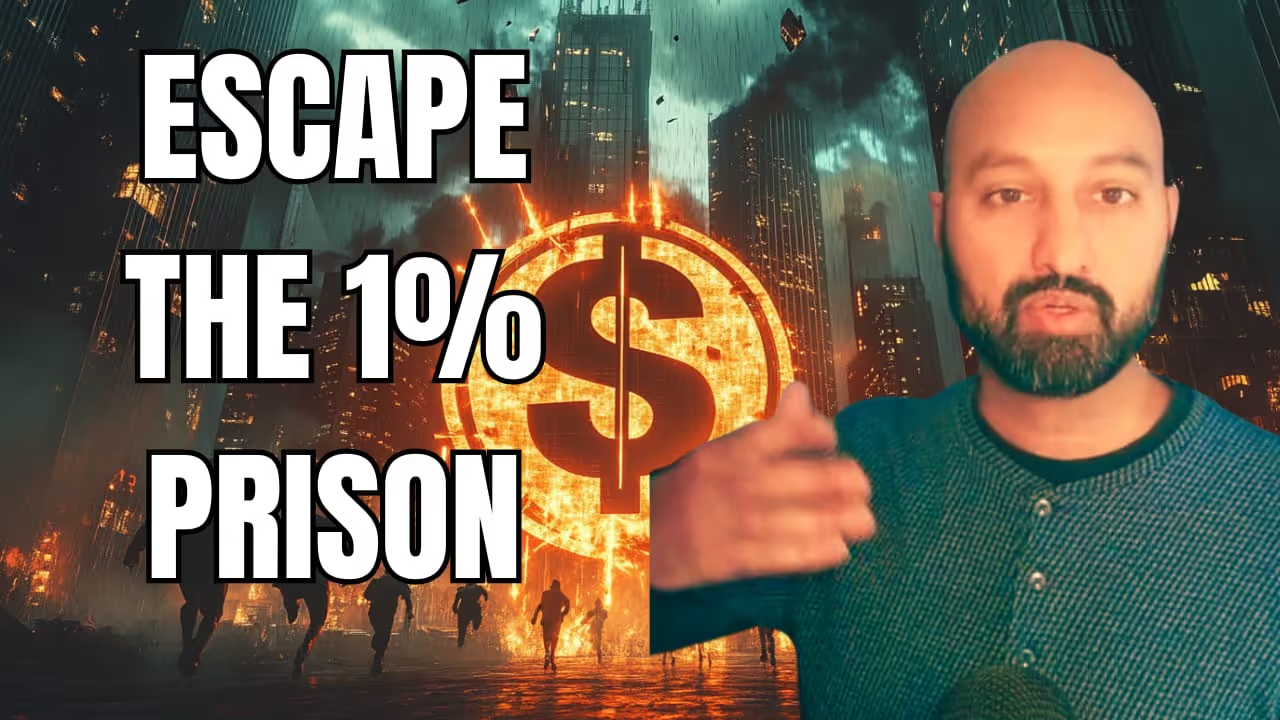
.avif)
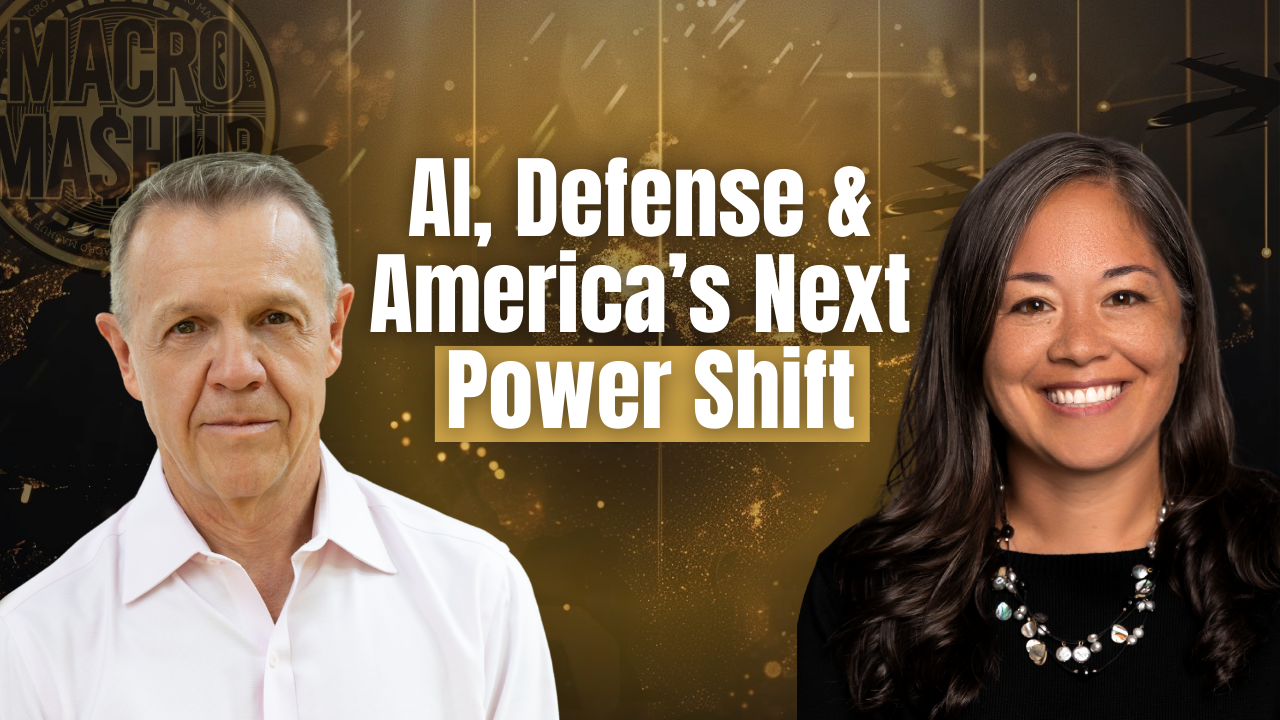
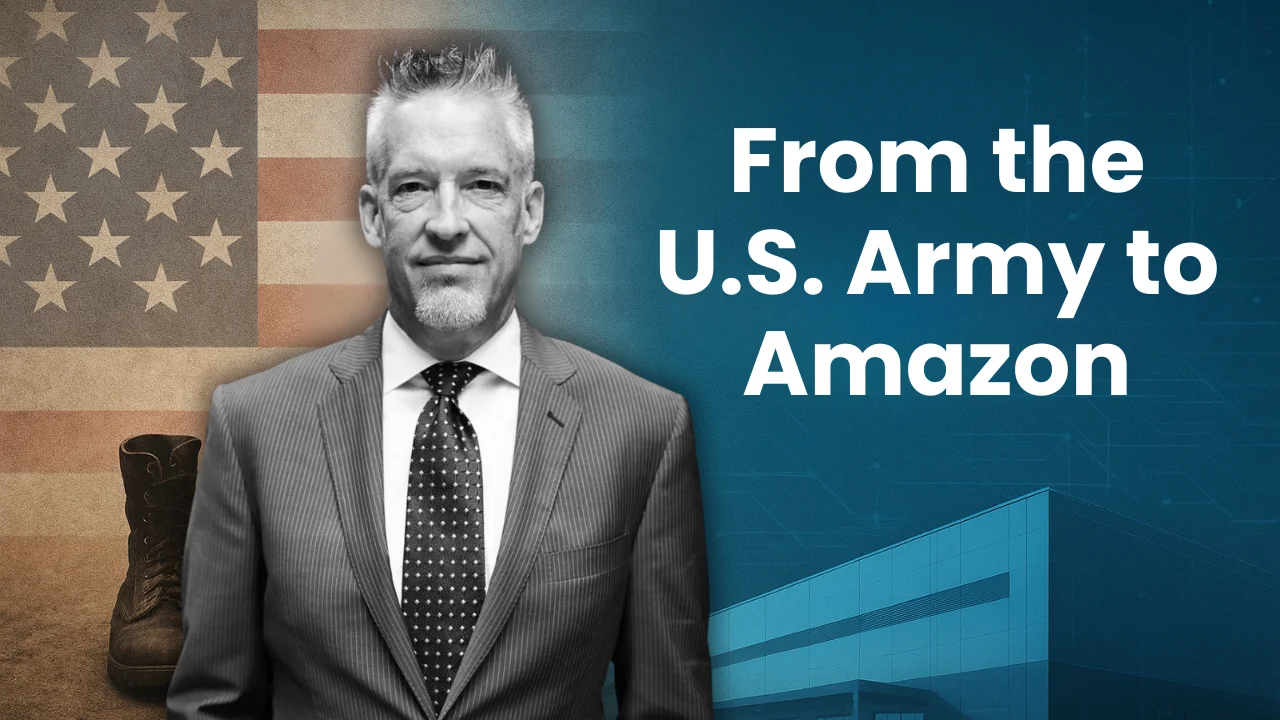
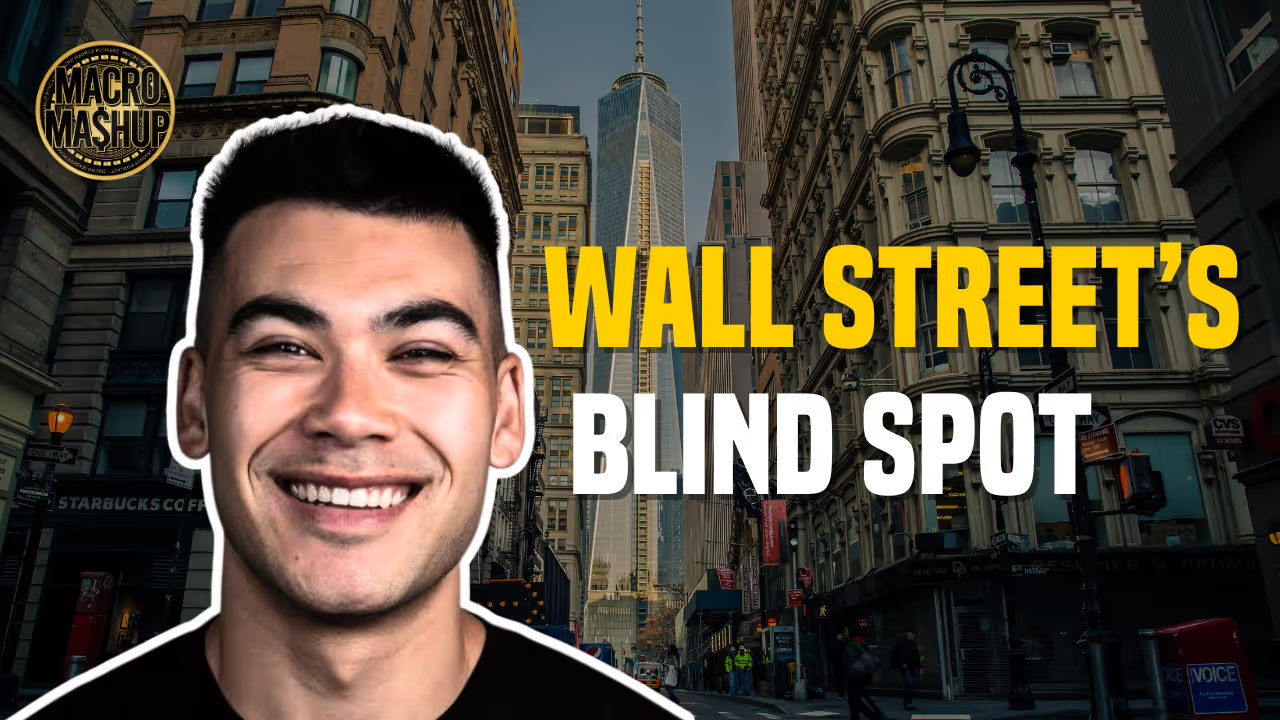
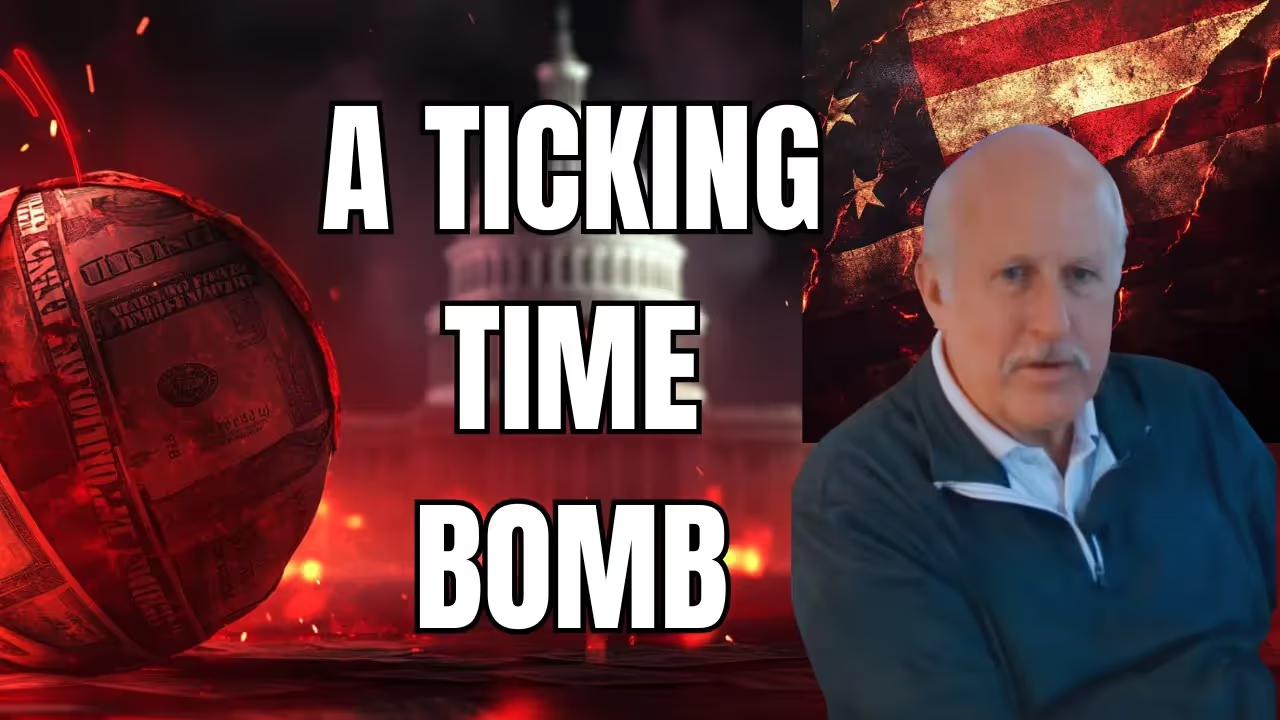
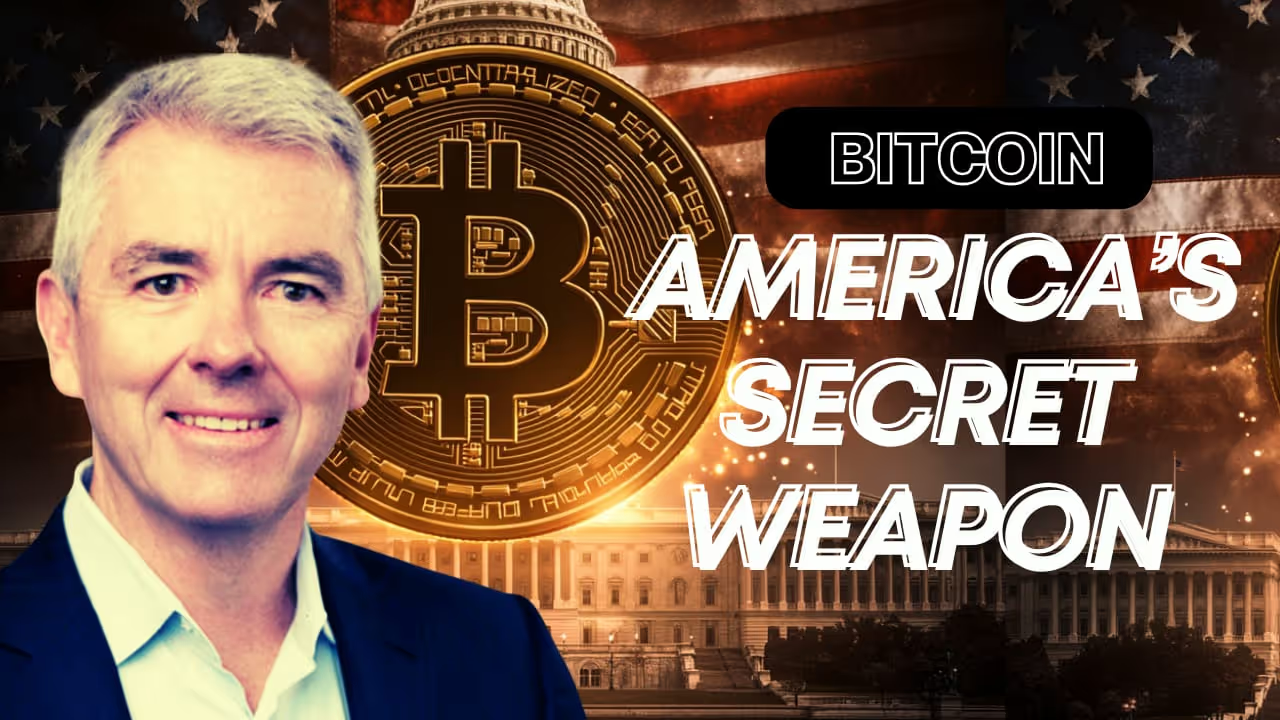
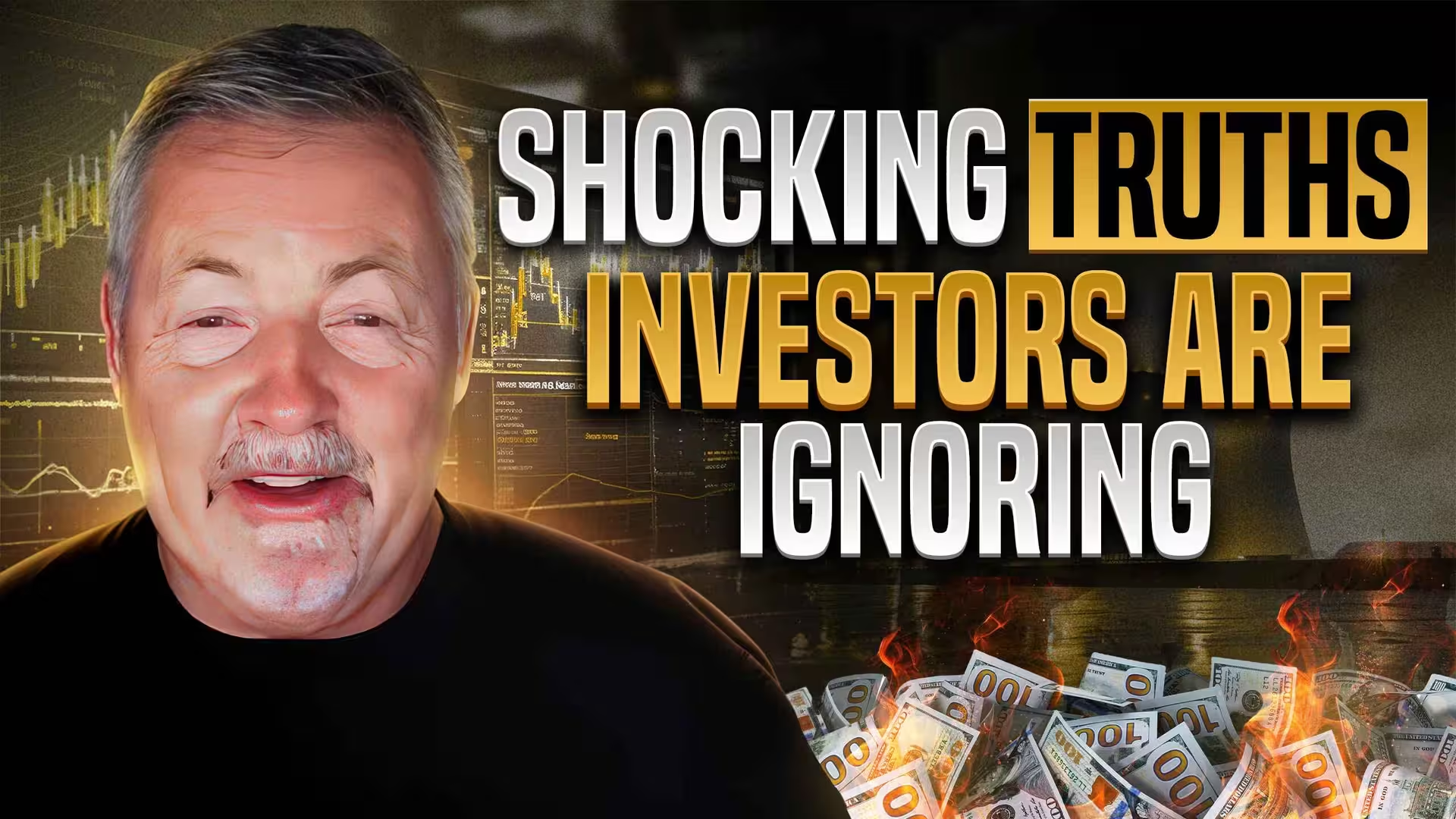
.svg)
.svg)
